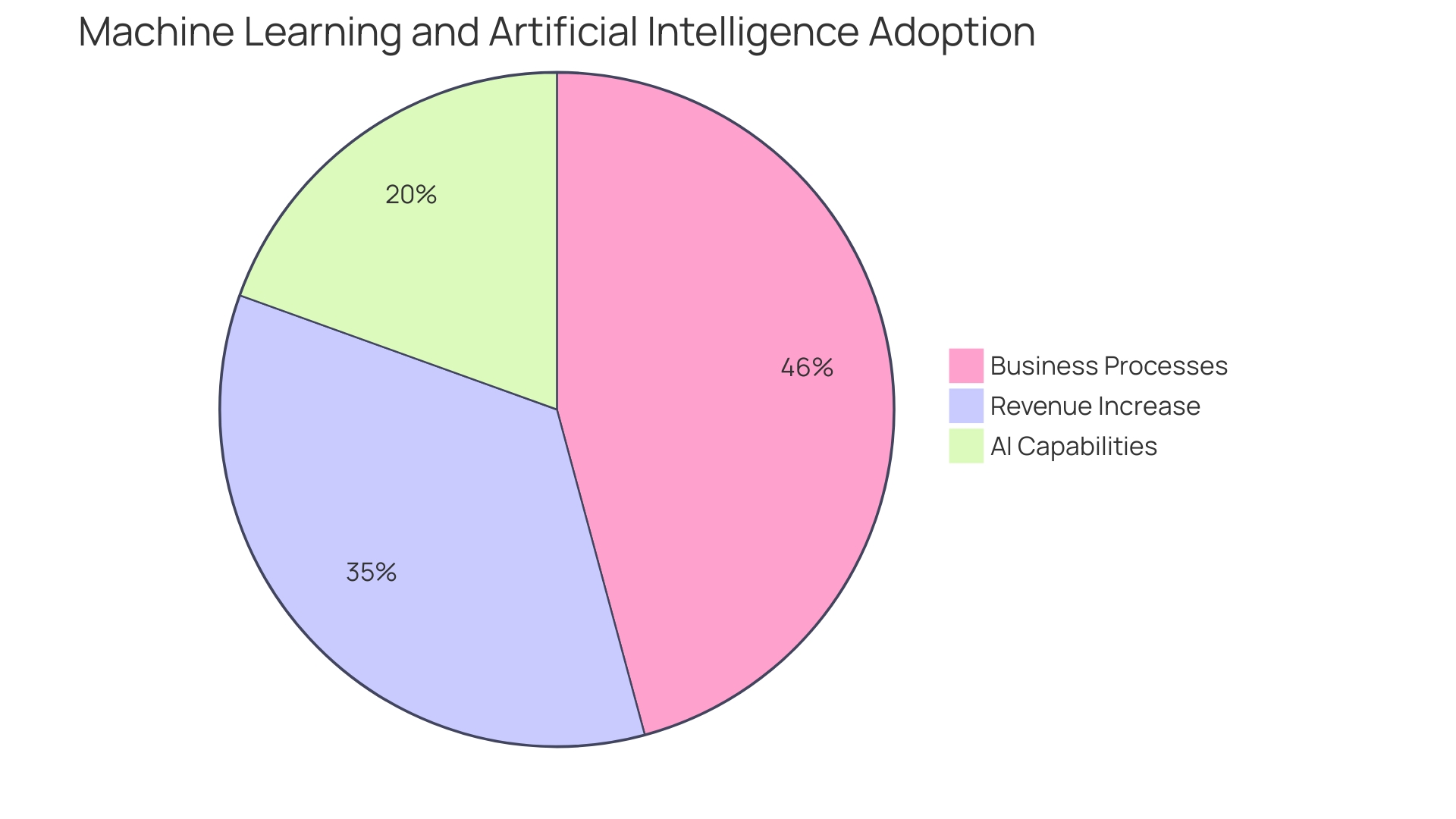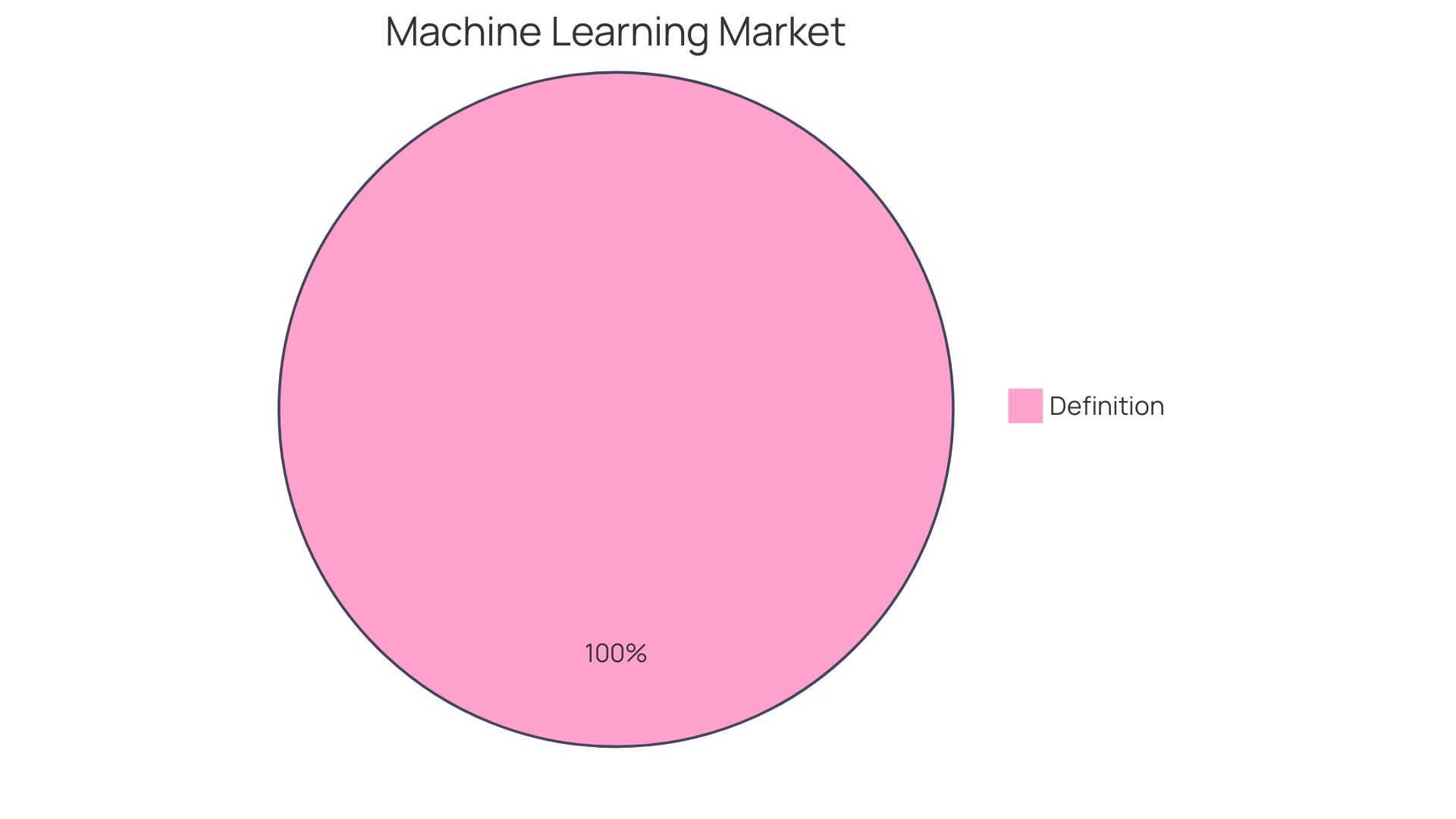Introduction
In the fast-paced world of e-commerce, machine learning (ML) is revolutionizing the way businesses connect with their customers. By harnessing the power of ML algorithms, e-commerce platforms can create personalized experiences that enhance customer satisfaction, boost conversion rates, and foster loyalty. From tailored product recommendations based on individual preferences to predictive analytics that anticipate future needs, ML is reshaping the customer journey.
But ML's impact goes beyond personalization. It also plays a crucial role in demand forecasting, inventory optimization, fraud detection, and pricing optimization. By leveraging ML, e-commerce businesses can streamline operations, enhance efficiency, and ultimately thrive in the competitive digital marketplace.
This article explores the transformative effects of ML in e-commerce and highlights its importance in delivering authentic and meaningful customer experiences.
Personalization: Enhancing Customer Experiences with ML
Using machine learning (ML) algorithms, e-commerce businesses are transforming the way they engage with and assist their clients. ML models can meticulously sift through vast amounts of data, including past purchases, browsing history, and demographics, to tailor product recommendations and offers that resonate with each individual's unique preferences and needs. Such personalization not only enhances the journey of the client but also greatly increases the rates of conversion and nurtures loyalty of the clientele.
One innovative application of ML in e-commerce is the extraction of nuanced details from user reviews using large language models (LLMs). By identifying specific attributes like size accuracy, fit, and fabric quality, AI can condense these insights into concise review highlights, sparing individuals the need to manually comb through countless reviews. Additionally, AI-driven improvements to size charts enhance their accuracy, further simplifying the shopping experience.
Take, for example, the predictive nature of ML which can anticipate a person's future needs based on their current shopping behavior. For a parent purchasing children's clothing, the algorithm might suggest larger sizes for the coming months. The Ai's skill extends to providing alternative styles that align with the shopper's preferences, drawing from a thorough analysis of product attributes and feedback.
The impact of such personalized experiences is evident in the numbers. Size recommendations alone, generated by analyzing millions of data points, have led to billions of recommendations monthly, with a substantial positive effect on purchase decisions across various global locales. This level of customization has become a cornerstone of the modern 'phygital' landscape, where the blend of physical and digital realms is paramount, and brands strive to be omnipresent to cater to the customer's channel of choice.
Machine learning's role extends far beyond personalization. It represents a subset of AI that equips computers to autonomously identify patterns and learn from data. This capability is being leveraged across diverse industries, paving the way for innovations such as predictive engines and live streaming technologies. As organizations endeavor to establish a customer-centric culture, the incorporation of ML in their operations has become a crucial element in delivering experiences that are not only personalized but also authentic and meaningful.

Predictive Analytics: Forecasting Demand and Optimizing Inventory
Harnessing the power of machine learning for demand forecasting and inventory management is transforming e-commerce businesses into more efficient, responsive entities. Sophisticated ML algorithms delve deep into historical sales, economic trends, and various external factors to deliver precise demand predictions. This data-driven approach facilitates an optimal inventory, mitigating the risk of stockouts while also curtailing excess stock. The key to success lies in maintaining a fine equilibrium between overstocking and understocking. For instance, Amazon's use of AI to streamline operations during peak holiday shopping seasons exemplifies the seamless integration of technology to enhance customer experiences and operational efficiency.
Real-time data analysis enables online platforms to adapt their inventory to changing market demands dynamically. A study on European online business landscapes indicates that a staggering 76% of decision-makers report an 11% revenue increase due to AI implementation. Furthermore, leveraging machine learning for predictive analytics not only anticipates client needs but also supports prescriptive analytics, recommending optimal actions for pricing and product placement. An example of this in action is Nor1's upsell solutions, which utilize machine learning to assess, price, and present offers in real time, ensuring the right product is available at the right price at the right time.
In the end, the implementation of AI and machine learning in online business not only improves the client experience but also increases revenue and simplifies processes, demonstrating its transformative impact in today's rapidly evolving digital market.
Fraud Detection: Protecting E-commerce Platforms with ML
The fight against online shopping fraud is a never-ending one, with significant consequences involving financial integrity and the trust of consumers. Machine Learning (ML) has emerged as a formidable ally in this fight, offering a sophisticated approach to detect anomalies and suspicious patterns that could indicate fraudulent transactions. These advanced ML models, trained on extensive datasets that include transaction details such as amounts, timestamps, and merchant information, are adept at identifying fraudulent activities in real time. The utilization of ML in fraud detection not only protects organizations from significant monetary losses but also enhances client trust, which is vital for nurturing loyalty and promoting recurring transactions. In a time when more than 40% of online shoppers have taken part in fraudulent activities in the previous year, with a surprising pattern of higher occurrence in the over-45 age category, it's evident that online shopping platforms must employ the most efficient tools at their disposal to uphold security. As highlighted by PwC, with worldwide fraud expenses skyrocketing to $42 billion in 2020, the incorporation of ML for fraud detection is not a luxury but a necessity for safeguarding the financial well-being and reputation of organizations while safeguarding their customers.
Pricing Optimization: Using ML to Determine Optimal Pricing Points
In the constantly changing world of online business, dynamic pricing is not just a fad but an essential requirement. Machine learning (ML) stands at the forefront of this transformation, enabling businesses to analyze a myriad of factors like competitor pricing, consumer demand patterns, and economic fluctuations in real-time. With sophisticated ML algorithms, e-commerce platforms can dissect intricate data such as price sensitivity, demand elasticity, and nuanced customer segmentation, to pinpoint the most profitable pricing strategies.
Take Axfood, Sweden's second-largest food retailer, for example. By implementing ML solutions across their decentralized data science teams, they have exponentially increased the sophistication and number of models in production, driving innovation and digital transformation. Likewise, Auchan's experience in Ukraine, Romania, and France demonstrates the effectiveness of ML in developing forecasting models that skillfully handle the intricacies of promotional strategies in various industries, leading to a notable 18% decrease in stockouts and overstock.
The statistics are striking: 40% of consumers now regularly turn to AI for online shopping assistance, and this seismic shift in consumer behavior underscores the importance of AI in reshaping marketing strategies. Businesses are prompted to rethink their approaches to engage with high-value consumers who are defined by their frequent online purchases.
Theories of price have long dictated that demand and supply establish the equilibrium, but today's ML advancements allow for a far more nuanced approach. Organizations strive to find the 'Right Price'—a delicate balance influenced by myriad organizational and marketing factors, not just cost-plus or value-based pricing strategies. It's about understanding the deep impact of price optimization on revenue and profitability, and how it can lead to increased sales and satisfaction.
The Machine Learning industry is booming, projected to reach a staggering US$79.29bn by 2024, with an anticipated CAGR of 36.08% leading to a volume of US$503.40bn by 2030. This growth is fueled by the increasing data availability, advancements in computing power, and a general trend towards automation and optimization across industries.
E-commerce enterprises utilizing ML for pricing optimization are well-positioned to flourish in the competitive market, attract more customers, and greatly improve their financial outcomes. This is not just a strategy for growth—it's an essential component for any business that aims to remain relevant and successful in the digital age.

Conclusion
In conclusion, machine learning (ML) is revolutionizing e-commerce by delivering personalized experiences that enhance customer satisfaction, boost conversion rates, and foster loyalty. ML algorithms analyze vast amounts of customer data to tailor product recommendations and offers based on individual preferences and needs.
ML's transformative effects extend beyond personalization. It plays a crucial role in demand forecasting and inventory optimization, enabling businesses to maintain optimal inventory levels and adapt to changing market demands in real time. ML also aids in fraud detection, safeguarding businesses from financial losses and strengthening customer confidence.
Additionally, ML is instrumental in pricing optimization, allowing businesses to analyze factors like competitor pricing and consumer demand patterns. By finding the right balance between supply and demand, e-commerce platforms can attract more customers and enhance their financial outcomes.
In summary, ML is reshaping the e-commerce landscape by delivering authentic and meaningful customer experiences. By leveraging ML algorithms, businesses can streamline operations, enhance efficiency, and thrive in the competitive digital marketplace. Embracing ML is essential for remaining relevant and successful in the fast-paced world of e-commerce.
Experience the power of machine learning in e-commerce today!





